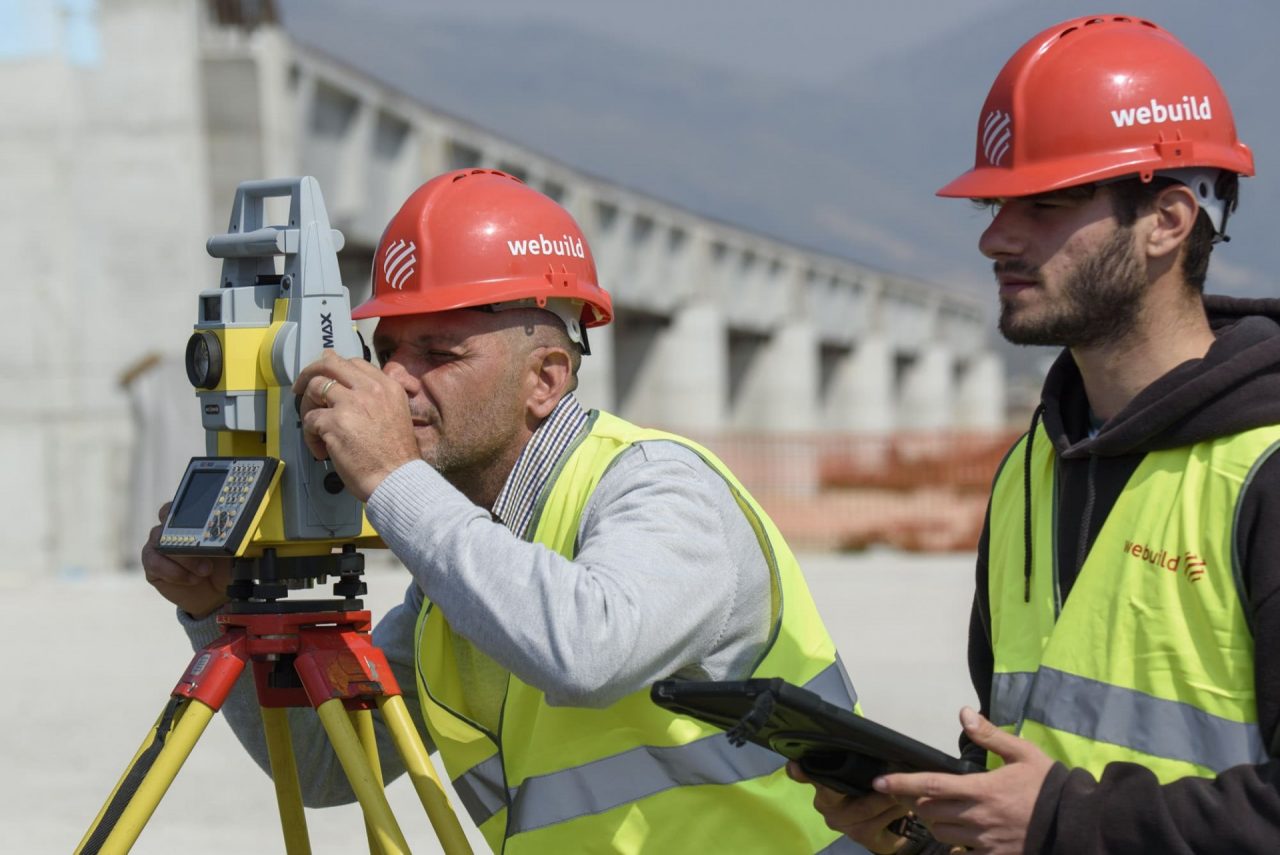Hiring people to make Italy’s big construction sites run. Webuild has launched its training programme designed to meet the demand for specialised professionals — workers and technicians in particular — to be employed at worksites across Italy.
Recruitment has already started on worksites of the Terzo Valico dei Giovi-Nodo di Genova (the high-speed railway that will connect Genoa with Milan) and the Naples-Bari high-speed line to Puglia. The “trade school” project created by Webuild aims at inserting professionals into the Group’s workforce. This will help meet the need for jobs, and also the very real need of a sector that — according to official statistics – must recruit 26,000 specialised people to carry out the works financed by the government’s National Recovery and Resilience Programme (NRRP), part of Europe’s stimulus plan to help national economies recovery from the pandemic.
“We want to contribute to the recovery of the sector and to the creation of employment in the short and long term in our country,” said Webuild CEO Pietro Salini, “which is why we set up a ‘trade school’ that’s unique in our sector. The ‘school’ will guarantee specific training for new human resources at Webuild Group, offering the security of a stable job and concrete career prospects.”
High-speed trains, freeways, subway lines, and hospitals are among the infrastructure projects that in the coming years support Italy’s economic recovery, which – just like in the rest of the European Union – also focuses on sustainable infrastructure as a driver of recovery.
Back to school to find work
The “trade school” launched by Webuild is focused mainly on technicians, and on specialised workers in particular. The project includes a period of training in the classroom followed by on-site experience lasting up to around six months. People taking part in the programme are individually mentored and accompanied by a tutor who supports them in training and evaluates the results. Particular attention is being paid to the issue of on-site safety. Ad hoc safety courses will be created, and simulators capable of recreating the extreme conditions that are experienced on site will be used.
The project is nation-wide and is aimed in particular at young people who have completed their professional education or upper secondary schools. In addition, the “trade school” is also open to unemployed people seeking re-skilling and relocation. It’s simple to apply on the Webuild website, and applicants are sorted into two pilot courses that start in February. The first course focuses on mechanical excavation using TBMs (Tunnel Boring Machines), the massive cutters that are generally used to build large tunnels for high-speed trains. In fact, the first construction sites involved in the project are the Terzo Valico dei Giovi-Nodo di Genova and the Naples-Bari.
Napoli-Bari, new recruits to run the TBMs
The TBMs have arrived from China in the ports of Bari and Barletta, ready to excavate the Apennines where a section of the Napoli-Bari high-speed line connecting Apice with Irpinia is being built.
To make sure it has the right workforce to operate these giants, Webuild has brought the “trade school” on the construction site. The ambitious goal is to hire people to be trained by the Group’s technicians and engineers, who are among the world’s leading experts in mechanised excavation.
“In the early months of 2022, we are ready to hire about 100 people and we plan to train and hire others over the rest of the year” said Vincenzo Moriello, project manager of the Apice-Irpinia section
The “trade school” thus becomes an opportunity to transform electricians, workers, but also laborers or pizza makers, into workers specialised in mechanised excavation, a technical skill required in the largest and most complex construction sites in the world. In the case of the 19-kilometre (12-mile) Apice-Irpinia section, TBMs are crucial for excavating the Apennines in some passages.
“Already today 220 people are working on the stretch, with about 500 supplier companies. The excavation work is about to get into full swing, and therefore we are sure that the ‘trade school’ can become an excellent tool to create jobs and offer us the opportunity to make the site run,” said Moriello.


